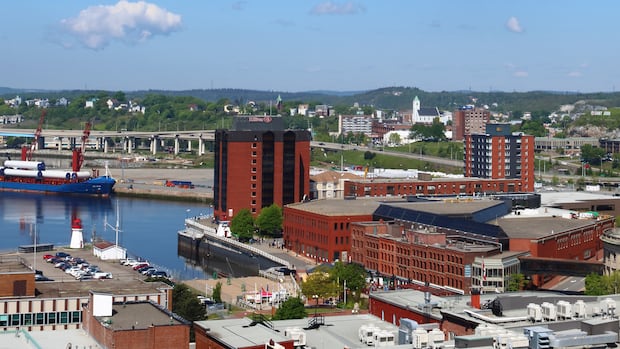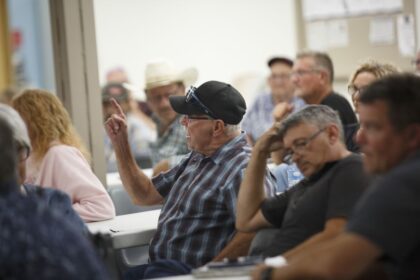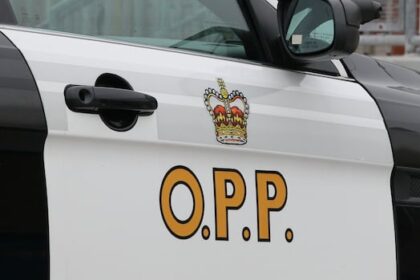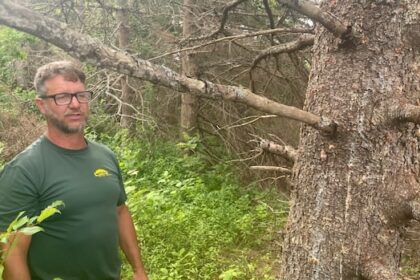New Brunswick·NewSaint John is hoping to become the first inclusive recovery city in Canada. The designation requires community involvement as a part of addiction recovery. Program that started in U.K. offers range of support, helps people give back to their communities Jennifer Sweet · CBC News · Posted: Oct 22, 2025 4:23 PM EDT | Last Updated: 43 minutes agoThe Sophia Recovery Centre, a Saint John non-profit, sees promise in the ‘inclusive recovery city’ program. (Julia Wright/CBC)A non-profit that supports women in recovery from addiction is hoping to make Saint John the first “inclusive recovery city” in Canada.That’s a designation created by a couple of criminologists from the United Kingdom who specialize in drug policy and recovery. In communities that sign on, a broad range of supporters assemble and agree to co-ordinate their efforts on behalf of people with addictions and to create opportunities for these people to also give back to the community.“What we’re trying to do here is to build the foundations to make recovery accessible … and to create that sense that it contributes,” said David Best, a professor at Leeds Trinity University and one of the movement’s founders.“When somebody achieves recovery, they benefit, then their family benefits, then their neighbourhood benefits, and then the whole community benefits. And it’s that real ripple effect that we want to celebrate.”David Best, a founder of the inclusive recovery city movement, will speak Friday at a Saint John fundraiser for the Sophia Recovery Centre. (Submitted by Julie Atkinson)The executive director of the Sophia Recovery Centre, Julie Atkinson, and several of her colleagues, heard Best speak at a conference last spring in North Carolina and were deeply inspired, she said.“I think it could be a good fit for any community,” said Atkinson.She likes that the Inclusive recovery city model “includes everyone who needs to have a say.”That’s appropriate, said Atkinson, because struggles with addiction, mental health and homelessness affect every part of society.The timing is right for Saint John, she said, because it’s “actively in search of effective solutions,” especially for the visible aspects of addiction problems.So far there are 34 inclusive recovery cities, said Best, naming Cape Town, South Africa, Richmond, Va., and Tampa Bay, Fla., as a few examples.Eager to grow the movement, he’ll speak Friday at the Sophia Recovery Centre’s annual Sunnyside Recovery Breakfast fundraiser.Over the last 15 years, Best said, he has collected more than 4,000 recovery stories from the U.K., United States, Australia and New Zealand.It takes an average of 28 years for an addict to get from their first use of psychoactive substance to five years in stable recovery, he said.What sustains people in recovery, said Best, is “coming into contact with attractive, desirable, appealing kind of groups or individuals.”This gives them a chance to get out of the social network they had when they were using drugs and into a new one that’s “pro-social,” he said.The main requirement of an Inclusive recovery city is to set up a council, ideally led by people who have experience in recovery and including civic representation, Best said.Julie Atkinson, the executive director of the Sophia Recovery Centre, says the inclusive recovery city approach is a good model because struggles with addictions affect every part of society. (Submitted by Julie Atkinson)He said the council’s main job is to organize at least four public-facing celebrations a year — things such as film festivals, recovery walks, seminars, sports days and music events — that showcase recovery successes and achievement The northeast of England, which recently became the first inclusive recovery region, is planning a Christmas pantomime, where people in recovery and staff from recovery organizations can bring their families, and presents will be given to each child.The inclusive recovery city concept is a significant departure from tried and tested programs such as Alcoholics or Narcotics Anonymous, which require discretion.Those programs have been effective for individuals, said Best, but at the community level, bringing recovery into the public sphere can get faster results, he argued.LISTEN | David Best breaks down the inclusive recovery approach:Information Morning – Saint John11:33Inclusive Recovery CitiesPeople tend to think of recovery from addiction as a personal effort, a private journey fueled by will power. But the Inclusive Recovery Cities movement is based on a different idea. That acceptance and support from the wider community is key for someone trying to overcome addiction. Not just from family and friends, but from neighbors, landlords and employers.He also thinks anonymity and stigma contribute to a misconception that addiction is a lost cause.Sixty per cent of those affected can make it to the milestone of five years in stable recovery, he said.“It’s so important we think of recovery as a kind of public health thing, as something much more akin to a social contagion,” said Best. “We know from the communities we’ve worked in with the inclusive recovery cities movement … recovery spreads faster where it’s visible, accessible and attractive.”Best points to the Jobs, Friends and Houses organization in Blackpool, England, as an example.According to a research paper Best worked on, published in 2018 in the journal Addiction Research and Theory, the Blackpool program gives participants a strong visual presence in the community, access to a range of recovery supports, apprenticeships in building trades and community-oriented work, such as renovating derelict houses.Its website boasts 300 members supported in recovery, including 50 who have become employed in the town of about 141,000.The inclusive recovery city model can work for any community that can pull partners together, said Atkinson.David Best said in a published paper that Jobs, Friends and Houses is different from other recovery programs because it has a highly visible brand that helps create a positive identity. (Jobs, Friends Houses/Facebook)The Sophia centre has already done some preliminary work toward bringing it to Saint John, she said.They’ve met with the mayor, WorkSafeNB, educational institutions and other non-profits.Atkinson hopes they’ll agree to participate, along with employers, sports associations and informal neighbourhood groups.“Those are the spaces where people need to be supported,” she said.ABOUT THE AUTHORJennifer Sweet has been telling the stories of New Brunswickers for over 20 years. She is originally from Bathurst, got her journalism degree from Carleton University and is based in Fredericton. She can be reached at 451-4176 or jennifer.sweet@cbc.ca.With files from Information Morning Saint John
Saint John group works on ‘recovery city’ response to addictions











